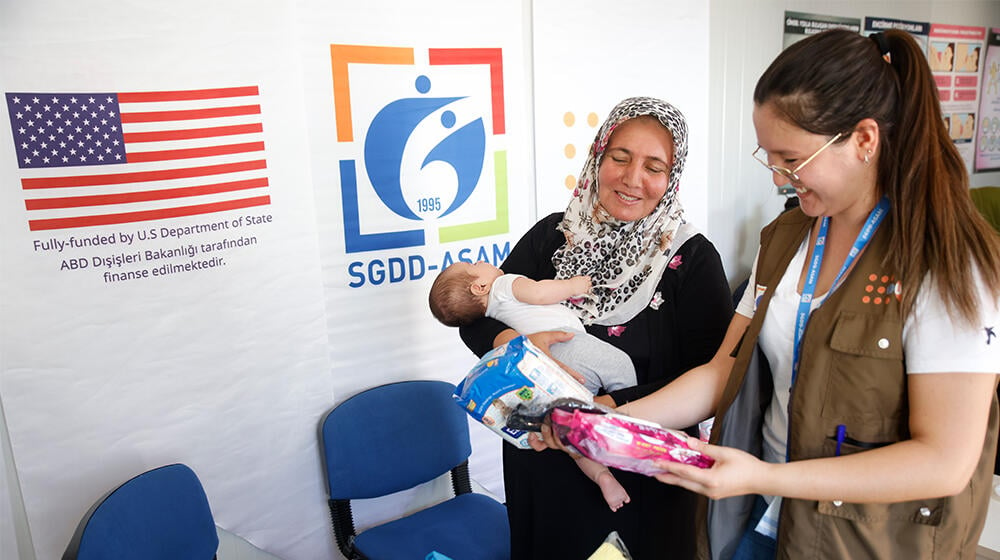Almost two years have passed since the devastating 6 February earthquakes. UNFPA has been on the ground with its partners since the first day of the disaster. In Adıyaman, with the financial support of the US Government and in partnership with SGDD-ASAM (Association for Solidarity with Asylum Seekers and Migrants), we continue to provide women’s health services with our Women, Mother and Child Health Center and mobile service units. Empowered by the services they receive, women share their stories.
ADIYAMAN, TÜRKİYE - United Nations Population Fund (UNFPA) Türkiye is providing women’s health, and prevention and protection services against violence against women for women and girls affected by the earthquake in Adıyaman with the financial support of the US Government and in partnership with SGDD-ASAM through static and mobile service units. The services also include awareness activities and individual counseling on reproductive health issues such as puberty, family planning, prenatal and postnatal care, mother-newborn health. Hear the stories of the women we support in their own words.
Remziye's story
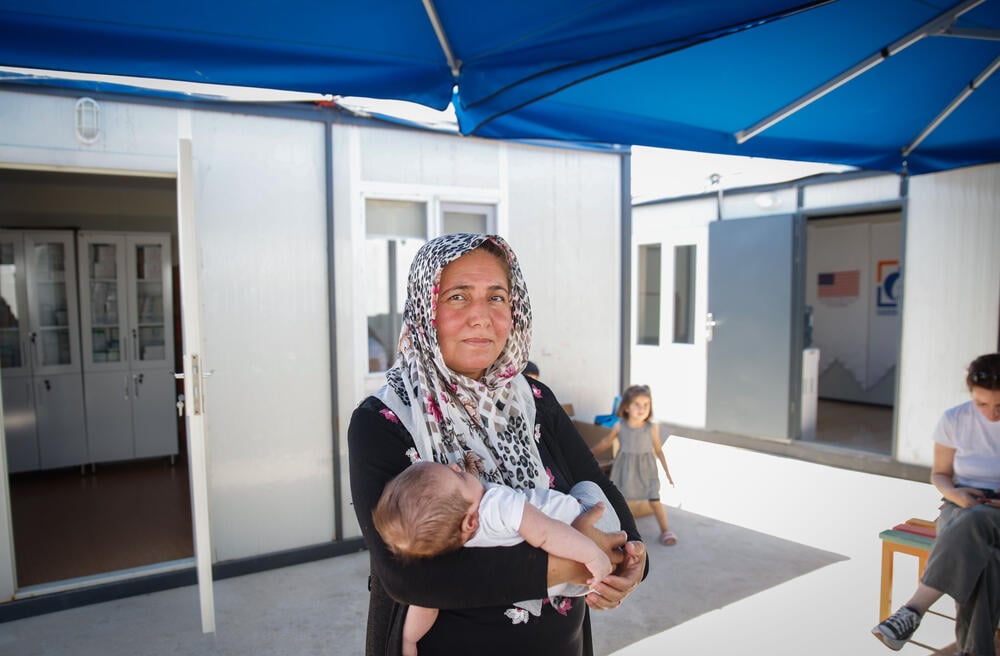
Remziye is a 42-year-old woman living in Adıyaman. She experienced the earthquake for the first time 8 years ago in Samsun, lost her home and lived in a tent for 2.5 years. Later, Remziye and her family settled in Adıyaman and experienced the February 6, 2023 earthquake there. “Our landlord pulled us out of the rubble. He said ‘it was a miracle that you are alive’.”
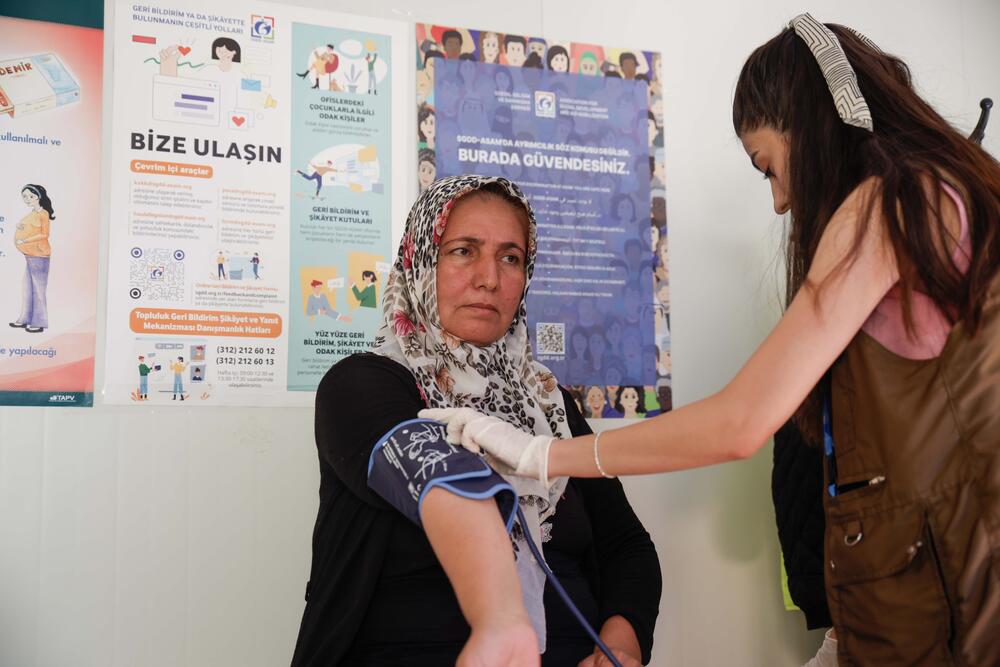
Remziye, who says that her psychology was affected after the earthquake, went to our center in the container city where she lives, met the nurses and was referred to our services. Remziye tells that she attended four different awareness sessions after the first contact: “We talked about everything from child nutrition to how to treat my children. Coming here and chatting with the center personnel makes me feel very good, it gives me morale.”
Remziye says that she received counseling, a maternity kit and referral support to other services from the center during her pregnancy; “I did not have financial means and I gave birth to a baby during this difficult process. They supported me a lot, gave me a kit, guided me, and thanks to this, the diapers came to my home.”
Rim’s story
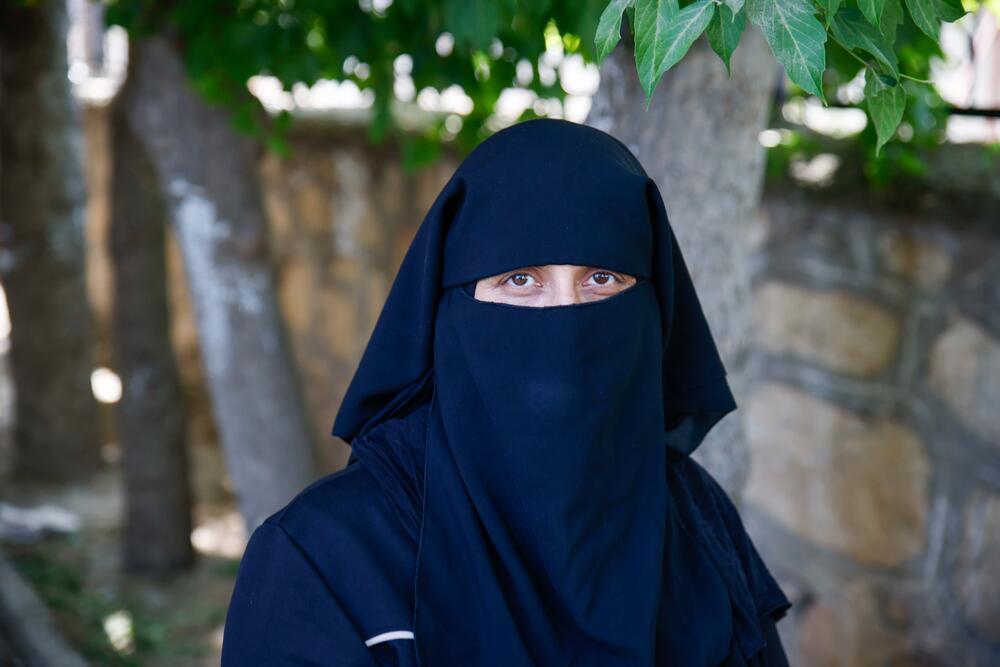
Rim, a 37-year-old mother of six, tells her difficult migration story from Aleppo, Syria to Adıyaman, "We had a hard time escaping the war. My two little girls and I came to Türkiye under very difficult conditions."
Rim and her family were in the process of establishing their lives in Türkiye when the earthquake hit and they began to have difficulty accessing even their most basic needs. Rim, who received a female dignity kit from our UNFPA-supported mobile teams, says she also attended individual counseling and awareness sessions offered by the center. “They provided important information, especially about violence against women and protecting children. I now understand better how I should treat my children,” she says.
Cemile’s story
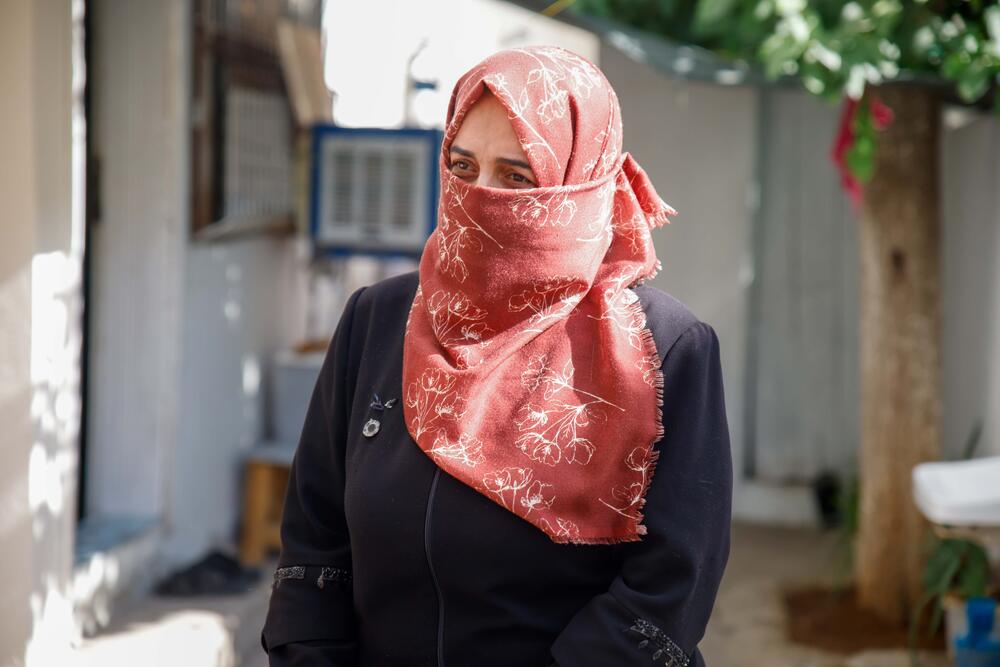
Similar to Rim, Cemile also lives in difficult conditions. Following the earthquake in Adıyaman, she has difficulty in meeting her basic needs, especially hygiene and food supplies. The young woman, who says that her paths crossed with the UNFPA Turkey-supported service unit during this process, says that the mobile team came to her house and carried out her health checks; and also supported her with her basic needs with the female dignity kit she received.
To reach women and girls in need, UNFPA also supports the services provided at the Women, Mother and Child Health Center in Adıyaman with mobile service units. Mobile service units provide health services with midwives, nurses, social worker and interpreters for women in the most vulnerable groups living in hard-to-reach areas.
UNFPA has been on the ground with its partners since the first day of the earthquake. With the financial support of the US Government and in partnership with SGDD-ASAM, UNFPA continues its work in Adıyaman with individual counseling, group sessions and mobile services to address health and protection needs, so that no one is left behind, especially women and girls.
Stories of Remziye, Cemile and Rim

